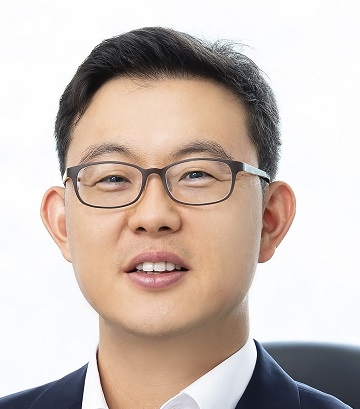Yoon, Tae-Young 윤태영
Comprehensive profiling antibody-antigen interaction space for antibody drug design and engineering
Antibodies, crucial in adaptive immunity, recognize antigens through specific interactions facilitated by Complementarity Determining Regions (CDRs), diversified via Variable-Diversity-Joining (VDJ) recombination. Traditional antibody development, limited by the scope of animal models and phage display libraries, captures a fraction of the potential antibody-antigen interactions. This underscores a gap in understanding antibody specificity and the relationship between antibody sequence and binding affinity. We have been developing an approach using the Single-Protein Interaction Detection (SPID) platform, repurposed to systematically map local landscapes of antibody-antigen interactions with unprecedented depth and speed, aiming to rival the precision of methods like Surface Plasmon Resonance (SPR) and Bio-Layer Interferometry (BLI) while significantly boosting throughput. By editing CDR sequences and measuring effects on dissociation constants, we are elucidating pathways for optimizing antibody affinity, enhancing predictive models for interactions. Our results demonstrate the capability of the SPID platform to characterize thousands of variants weekly, offering a deeper insight into antibody-antigen interactions and advancing antibody development with finely-tuned affinities.
Membrane protein folding
Our research focuses on uncovering the molecular mechanisms of membrane proteins, a class of biomolecules often overlooked despite their critical biological and therapeutic significance. We utilize a diverse array of single-molecule techniques to observe both the conformational changes and functional dynamics of these proteins. As part of this effort, we are pioneering an innovative approach using single-molecule magnetic tweezers to monitor the folding of complex alpha-helical membrane proteins. This allows us to map the energy landscape that governs the complete folding process of polytopic alpha-helical membrane proteins (Nat. Comm. 2013, 2014, Nat. Chem. Biol. 2015, 2023, and Science 2019).
We have also applied similar techniques to explore the single-molecule mechanics of SNARE assembly, recently uncovering the disassembly mechanism of the SNARE complex by the proteasome system (20S complex). This work has shed light on how AAA+ ATPases tightly couple ATP hydrolysis with the unfolding of protein substrates (JACS 2013, Science 2015, and Nat. Comm. 2022).
Education
- - 2000. 3 – 2004. 8 Seoul National University, Ph.D. in Electrical Engineering
- - 1998. 3 – 2000. 2 Seoul National University, M.S. in Electrical Engineering
- - 1994. 3 – 1998. 2 Seoul National University, B.S. in Electrical Engineering
Career
- - 2021.06 - National grant for leading scientists, Investigator
- - 2020.03 - Professor, Seoul National University
- - 2017.03 – 2020.02 Associate Professor, Seoul National University
- - 2016. 03 – 2017.02 Yonsei University Yonsei-IBS Institute
- - 2014. 02 – 2016.02 KAIST, Associate Professor with tenure Department of Physics
- - 2014. 01 – 2018.12 Samsung Science and Technology Foundation, Principal Investigator Fundamental Sciences, Physics discipline
- - 2011. 04 – 2020.02 National Creative Research Initiative, Principal Investigator Ministry of Science, ICT and Future Planning, South Korea
- - 2010. 09 –2014.02 KAIST, Associate Professor Department of Physics
- - 2007. 10 –2010.08 KAIST, Assistant Professor Department of Physics and KAIST Institute for the BioCentury
- - 2006. 7 – 2007. 10 Howard Hughes Medical Institute, Research Associate University of Illinois, Urbana-Champaign
- - 2005. 7 – 2006. 7 University of Illinois, Urbana-Champaign, Research Associate Department of Physics
- - 2004. 9 – 2005. 6 Seoul National University, Research Fellow Inter-University Semiconductor Research Center
- Hyun-Kyu Choi, Hyunook Kang, Chanwoo Lee, Hyun Gyu Kim, Ben P. Phillips, Soohyung Park, Charlotte Tumescheit, Sang Ah Kim, Hansol Lee, Soung-Hun Roh, Heedeok Hong, Martin Steinegger, Wonpil Im, Elizabeth A. Miller, Hee-Jung Choi and Tae-Young Yoon (2022), Evolutionary balance between foldability and functionality of a glucose transporter, Nature Chemical Biology (18), 713-723.
- Hyun-Kyu Choi, Hyun Gyu Kim, Min Ju Shon, and Tae-Young Yoon (2022), High-resolution single-molecule magnetic tweezers, Annual Review of Biochemistry (91), 33-59.
- Byoungsan Choi, Minkwon Cha, Gee Sung Eun, Dae Hee Lee, Seul Lee, Muhammad Ehsan, Pil Seok Chae, Won Do Heo, Yongkeun Park and Tae-Young Yoon (2020). Single-molecule functional anatomy of endogenous HER2-HER3 heterodimers, eLife(9), e53934.
- H.-K. Choi, D. Min, H. Kang, M. J. Shon, S.-H. Rah, H. Jeong, H.-J. Choi, J. U. Bowie & T.-Y. Yoon (2019) Watching helical membrane proteins fold reveals a common N- to C-terminal folding pathway. Science
- M. J. Shon, H. Kim & T.-Y. Yoon (2018) Focused clamping of a single neuronal SNARE complex by complexin under high mechanical tension. Nature Communications

